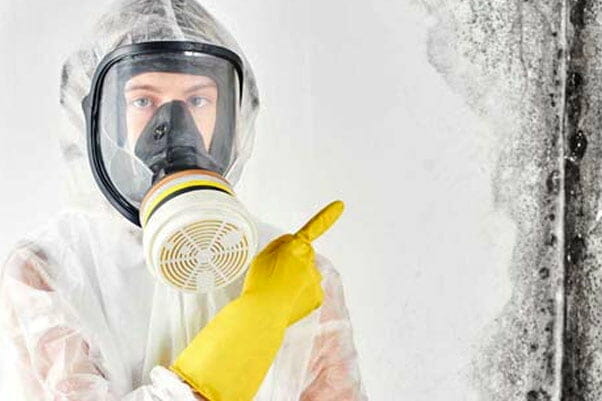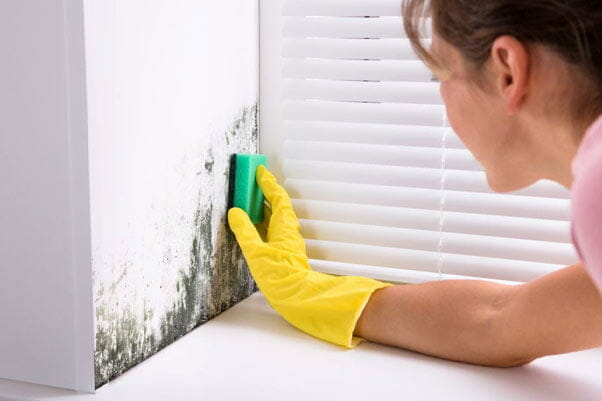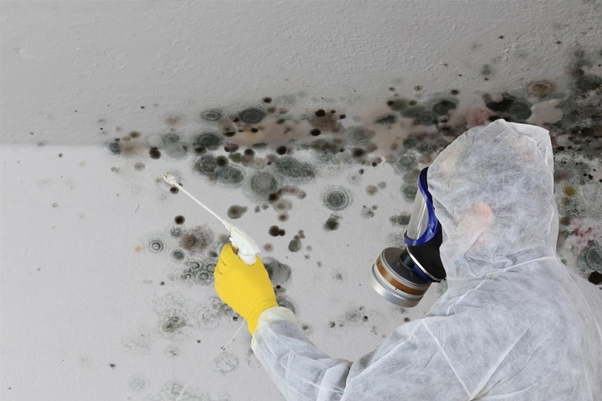In the moist and muggy periods, mold frequently pops up as an undesirable guest in numerous homes. The persistent inquiry is, how can this annoying issue be effectively tackled? Can homeowners manage this challenge on their own, or is it necessary to enlist the help of experts?
While it may be impossible to completely remove all traces of mold from your home, if you find yourself with a mold problem, mold remediation may help. During mold remediation, professional remediators will take steps to remove, clean, and sanitize any moldy areas of your home. If done correctly, mold remediation can have immediate and lasting effects.
Not all mold remediators are alike however, and you should do your research before engaging anyone to remove any mold you may have growing in your home. At a minimum, you should understand what the mold remediation process entails, exactly when you should engage professional mold remediators, and make sure you are aware of some of the common mold remediation scams.
Can mold come back after remediation?

Mold is everywhere. Both indoors and outdoors, where it can be seen and where it can’t. As such, your home will never be entirely free of mold. Mold will tend to grow wherever there is moisture present, which is why it can be particularly prevalent in bathrooms and kitchens.
If you have an issue with moisture in your home, such as a leak or flood, it can give rise to a large scale mold problem. If you are faced with excessive amounts of mold in your home, it is not only advisable, but recommended to have this mold remediated from both health and aesthetic points of view.
If your mold problem is remediated correctly, it will have addressed and fixed any underlying moisture or dampness issues. Whether this is fixing a leak or a crack, or thoroughly drying the aftermath of a flood, professional remediators will seek to stop the influx of excessive moisture as one of the first steps in the remediation process.
If your moisture or dampness issue is remedied, then it is unlikely that mold will grow back after remediation. However mold will grow in moist, damp conditions, and if this is not fixed, you may be faced with a recurring mold issue.
What happens during the mold remediation process?
The mold remediation process will differ slightly depending on the area, items, and materials that need to be remediated. Despite this, there are a few steps common to all mold remediations.
- Your mold remediation contractor will assess the scope of your mold problem and take note of the moldy areas or items, including the materials they are made of.
- The mold remediation contractor will identify the source of the moisture or dampness issue.
- Depending on the extent and type of mold issue, your contractor will plan the remediation process accordingly. This could include methods of removal and equipment or chemicals to be used.
- Your remediation contractor will ensure that all team members performing remediation are wearing proper personal protective equipment.
- Your remediator will contain the moldy area or items to prevent the spread of mold spores.
- The water or moisture problem will be fixed. The precise timeline for this may depend on the extent of the water problem.
- Your remediation contractor will clean and dry moldy areas and materials.
- Any moldy items that can’t be cleaned will be discarded. This can include sections of carpet or drywall.
Can you do mold remediation yourself?

You should only perform mold remediation yourself if the moldy area in question measures less than 10 square feet in total. This is equivalent to an area measuring roughly 3 feet by 3 feet.
Mold remediation scams
Mold remediation scams are considered to be forms of both health and financial fraud. They usually prey on fears regarding the danger of mold in your home, and unfortunately tend to crop up in the wake of natural disasters such as floods.
Some scams to watch out for relating to mold remediation include:
● The contractor only performs a cursory visual inspection of your home, and no further testing.
● Their quote does not include information about the underlying moisture issue that caused the mold growth in the first place.
● The contractor provides no information about the type of mold growing in your home.
● The contractor wishes to charge you a fee for a mold-free certificate – this is a common scam that happens to homeowners trying to sell their property.
● The contractor requires you to pay a large deposit or upfront fee.
● The contractor can not provide you with certifications or qualifications.
Do I really need mold remediation?

If there is a noticeable, odorous mold growth in your home, it is very likely you will need mold remediation. If the mold growth is larger than the 10 square feet threshold, then you should consult a professional remediator for advice.
Even if you don’t believe your mold growth requires remediation, any recurrent or growing patches of mold in your home should at least be inspected and tested by professionals. It may be that you have an underlying moisture or dampness issue, or even have some hidden mold – mold that grows in places such as behind walls, paint, wallpaper, and carpets – that needs to be addressed.
Mold removal cost
The exact cost of your mold remediation will depend on a few factors. The location and size of the mold growth, the type of mold that is growing, the extent of any remodeling that may be required, and even where you live, can impact the cost of your mold remediation.
The average cost of mold remediation falls between US$1,500 and US$3,000. However, there is a whole of situations and circumstances in which remediation can cost both less and more than this average.
On the lower end of the spectrum, mold remediation in a small, confined space can cost as little as US$500. This could include remediation in your shower or bath, or in a crawl space or wardrobe.
However, a full remediation of a large, open space can cost up to US$10,000. If your professional remediator needs to replace drywall or carpeting, or fix a leaking pipe, the treatments required will be much more extensive and much costlier.
FAQ’s
Is mold behind drywall dangerous?
While it can be tempting to take an out-of-sight, out-of-mind approach to any mold that may be growing behind your drywall, this would not be wise.
Although you may not be able to see it, the mold behind your drywall could be causing as many problems as mold in any other area of your home. The tiny spores that are released by molds will still infiltrate into your home, even if the mold growth is behind drywall.
If you suffer from a mold allergy or asthma, these hidden mold growths can pose a real issue to your health. Even if you don’t suffer from these illnesses, prolonged exposure to mold and mold spores can cause respiratory issues such as coughing, sneezing, and difficulty breathing.
Is it safe to live in a house after mold remediation?
If you have your home properly cleaned and sanitized by a professional mold remediation contractor, then they will have removed any significant mold problems and your home will be safe to live in again.
A professional mold remediation contractor will ensure that all potential mold issues, including those patches of hidden mold that might be lurking out of view, have been checked for, tested, and removed.
In situations where mold has infested certain parts of your home such as carpet or drywall, a thorough mold remediation process will result in the affected materials being removed, disposed of, and replaced. While precautions such as these may increase the cost of your remediation, they pay for themselves in peace of mind and knowing that your home is free from mold growth.
What if mold is found during home inspection?
If a significant mold growth is found during a home inspection, you may be required to have it professionally tested and even remediated before you can sell. Although this will depend upon the buyer, the minimum requirement may see the mold in question being collected and sent off for testing, potentially delaying the sale of your home.
If you have had mold remediation done in the past, you may be required to disclose this during the selling process. Ensure you keep all the official documentation provided by your remediation contractor, and be prepared to discuss the work performed with any potential buyers.
How does SERVPROremove mold?
The exact process of mold removal will depend on your individual circumstances. SERVPRO can help with every stage of the mold remediation process, from the initial call with a customer service representative and performing the initial assessment, to performing specialised antifungal and antimicrobial treatment and conducting any restoration works.
To understand how SERVPRO can help you with your mold issues, or if you simply have any mold-related questions, get in touch with the dedicated, knowledgeable customer service team on 1-800-SERVPRO.







